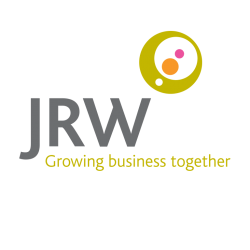MAKING TAX DIGITAL
‘Making Tax Digital’ is the next big thing to affect taxpayers and while it’s some way off yet HMRC is slowly making changes in preparation for it, Kevin Crowford takes a closer look.
For Companies
The latest moves, which HMRC announced in September 2016 include the withdrawal of tax return confirmations for companies.

No more paper
From the date of HMRC’s announcement it will no longer send a letter confirming that your company’s tax return (CT600) has been successfully submitted. Instead, an e-mail will be sent to your company or its accountant (if you have authorised HMRC to correspond with them) suggesting that you should check your company’s online account for confirmation.
Received but not submitted
At the time you send your company’s tax return online you’ll receive confirmation it has arrived. This is not confirmation that it has been successfully submitted. Therefore, especially where you send the return near to the filing deadline, you should follow HMRC’s suggestion and check your company’s online account over the following few days to ensure that there are no problems.
You’ll no longer receive confirmation when your company’s tax return has been accepted by HMRC. Instead you should check your company’s online account with HMRC which will show this information.
Compulsory Digital Records
Who does it apply to?
At this stage, the Making Tax Digital proposals only apply to sole traders and partnerships, the consultation doesn’t address limited companies or their directors, this will be covered in a separate consultation later on this year.
HMRC is also proposing that Making Tax Digital would only apply after £10,000 annual income or turnover, so a sole trader with one small business that makes sales under £10,000 a year would be exempt. However, a sole trader with two businesses, each making sales of £6,000 a year, would have to comply, because the total income for the year is £12,000.
How would Making Tax Digital actually work?
Contrary to popular belief, it would not require businesses to file four tax returns every year. Instead, businesses will send summary data to HMRC about their business each quarter, or more often if the business prefers. The summary data will consist of total income and total expenditure, with the expenditure broken down into categories such as travel and advertising.
Businesses will need to send this information using online accounting software and that the use of “digital record keeping software that links to and updates business’s digital accounts with HMRC” will be mandatory, except for taxpayers who are exempt.
Each business will have a proposed 9 months after the year end to file an “End of Year declaration”, submitting final figures. This would be a month less than the current tax return filing deadline, which is just under 10 months after the end of the tax year.
And because businesses have the option to report more often than quarterly, this would introduce flexibility for seasonal businesses, because the report would not have to be regular.
Details of note for you and your business:
• Your business won’t have to keep any additional paper records.
• If your business is registered for VAT, one report would cover both Income Tax and VAT reporting requirements.
• If your business needs to make accounting adjustments, then you could do this either mid year or at the end of the year.
• Allowances and reliefs, such as Annual Investment Allowance, could also be notified to HMRC either in year or at the end of the year.
• HMRC believe that the cash basis of accounting should be extended to larger businesses, as this will be simpler for them to use. It has suggested doubling the current entry threshold, which matches the current VAT registration threshold.
When will Making Tax Digital start?
It is planned to start in April 2018, but for the smallest businesses that come within its scope, a year’s extension has been suggested. The new scheme will be fully in place by 2020.
How will tax payments work?
HMRC is not planning to change the current payment dates, but they have asked as part of the consultation if they should review the payment on account regime. Businesses may have the right to make voluntary payments towards their tax liabilities, which would be aggregated together.
Under ‘Pay As You Go’, the customer will decide how often and what amount they want to pay. Payment will not have to be at any fixed time, or at regular intervals; the customer will retain control and choice, so they feel confident that they have made the right decision for their circumstances, and have the opportunity to amend their choices if circumstances change.
How will penalties work?
HMRC is proposing to abolish the current penalty system for late submissions and instead impose a points based system similar to driving licence penalty points, with a financial penalty to be imposed only when the points reach a set level.
CONCLUSION
As you will see, ‘Making Tax Digital’ is coming and the way that you manage your taxes is changing forever. This is something that simply can’t be ignored and if you haven’t already done so we would strongly recommend that you take your business tax online as soon as possible.
The Government have a vision for a modernized tax system that may see the end of the tax return. It aims to completely revolutionize the service that it provides to taxpayers through a £1.3bn investment that will transform HMRC into one of the most digitally advanced tax administrations in the whole world. ‘Making Tax Digital’ sets out how their vision for the future of the tax system will be achieved by 2020 through simpler and more aligned payments for tax, which operate much closer to real time.
But ultimately the Government’s message on tax is very clear, take your accounting online because digital tax is the future.
For further advice and guidance please do not hesitate to contact us direct, we also have extensive experience with the various online and cloud accounting packages such as Xero, FreeAgent, KashFlow, Sage and so on.
